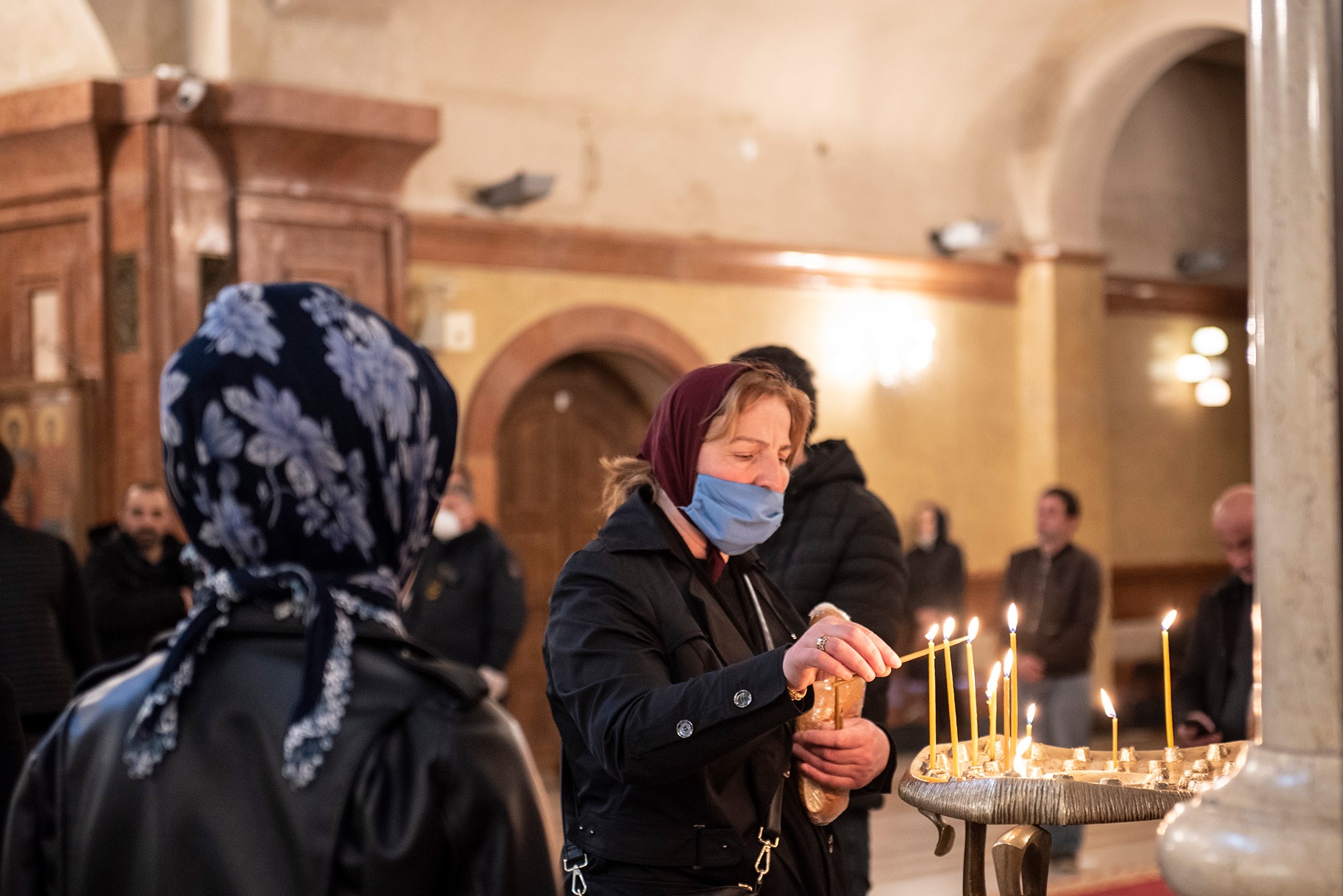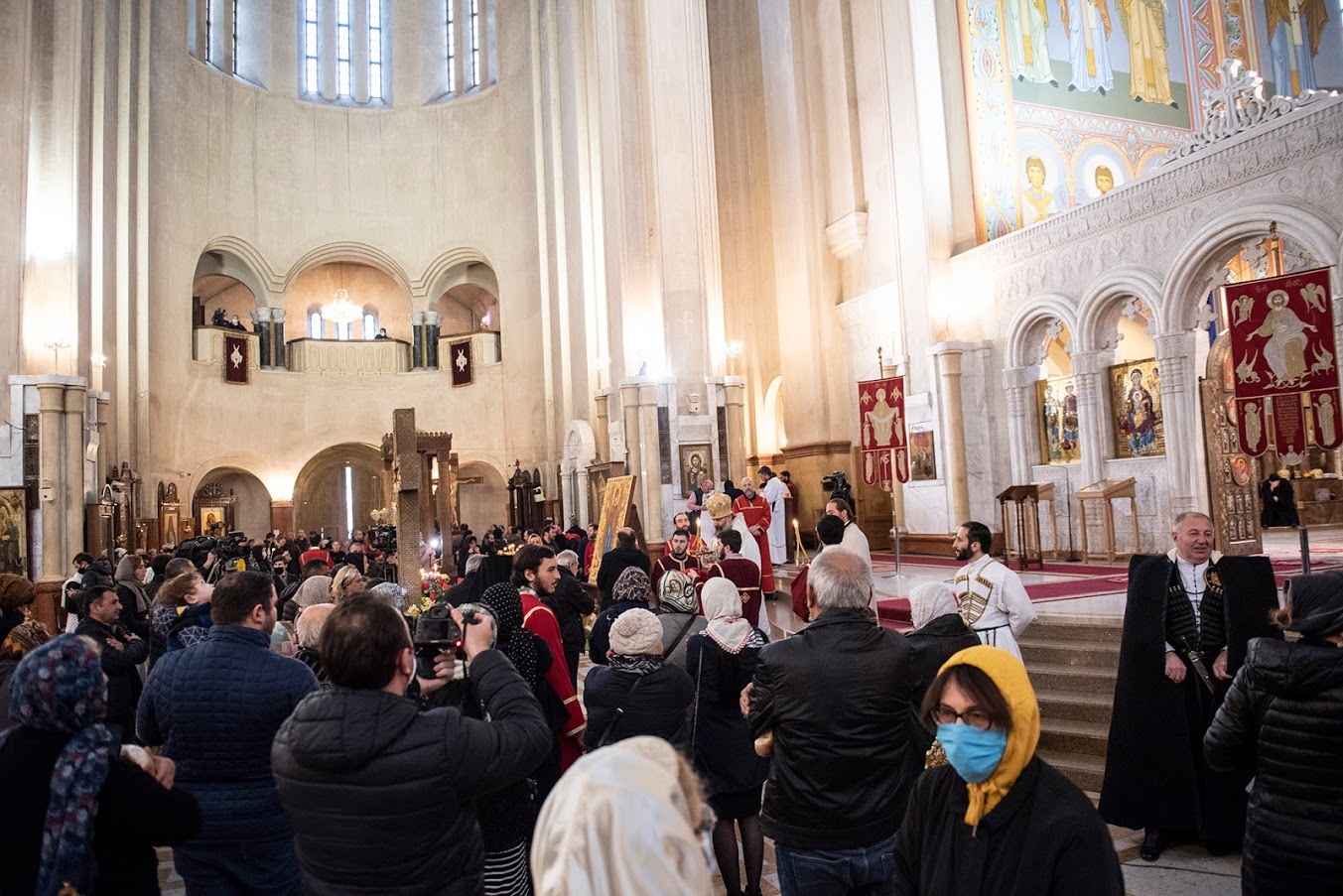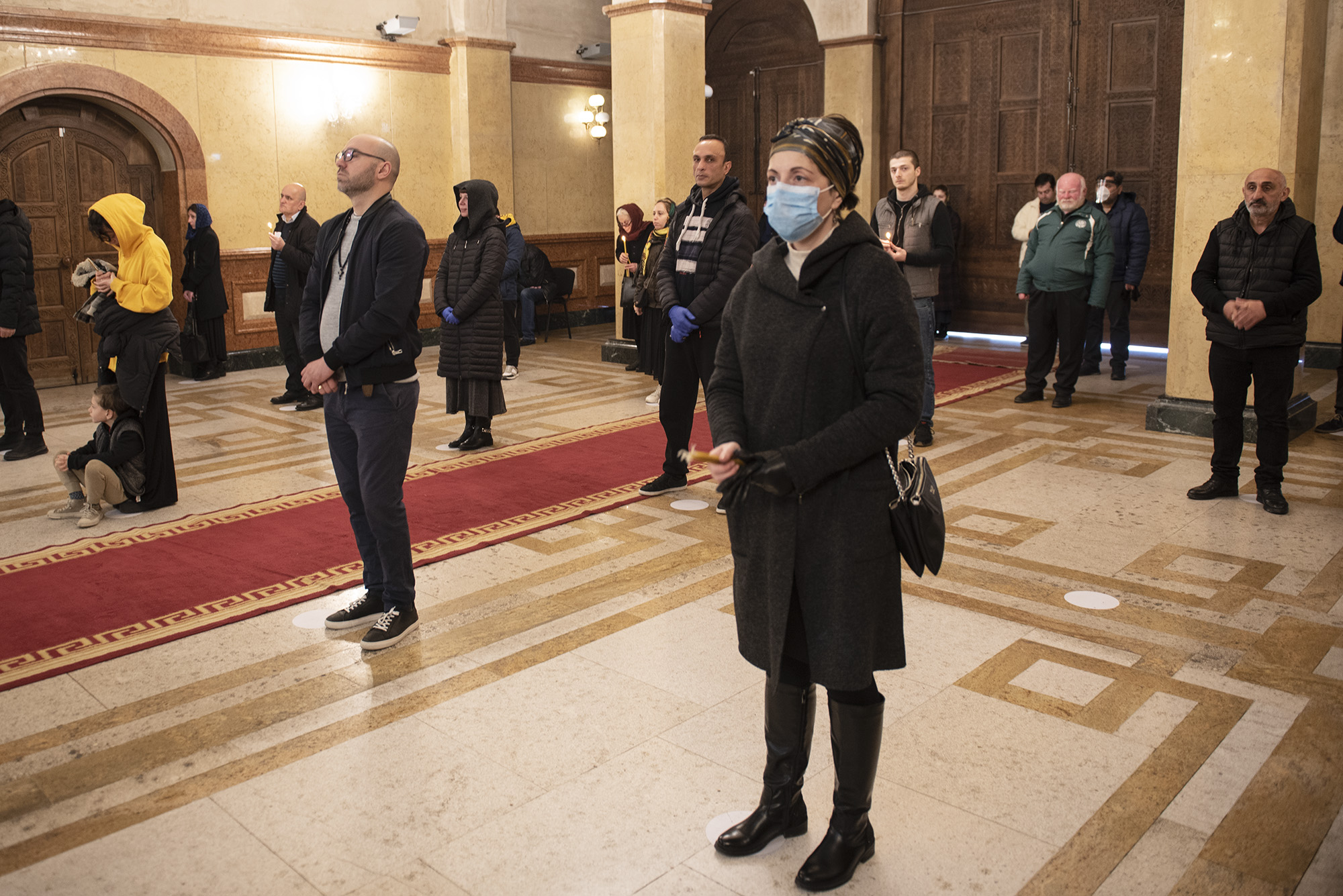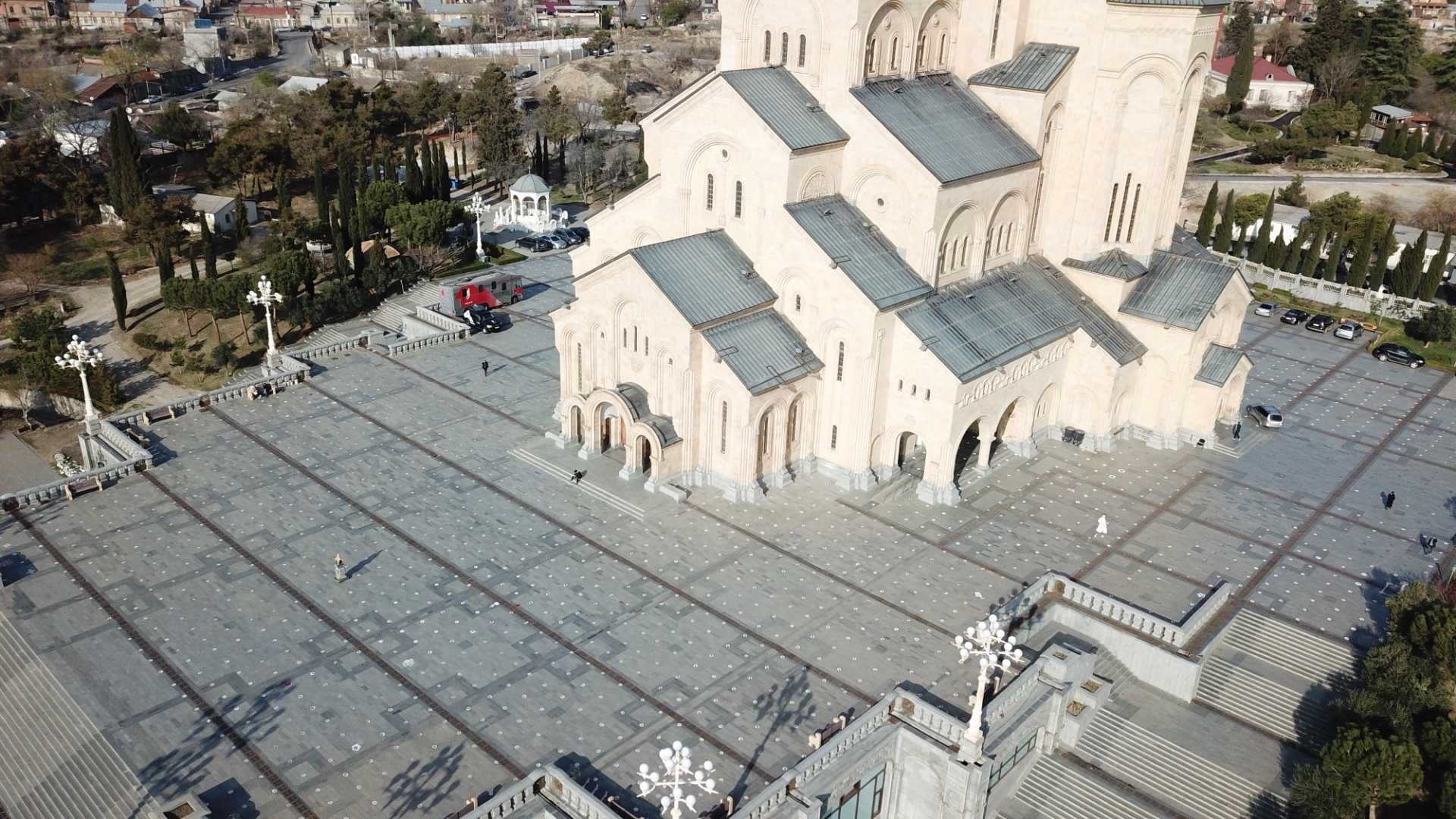
The Georgian Orthodox Church has resisted calls to restrict upcoming Easter celebrations to limit the spread of COVID-19. Public health authorities have warned that mass gatherings in churches, as is usual in Georgia over Easter, could lead to a widespread outbreak of the virus.
Asked about the celebrations on 6 April, Paata Imnadze, Deputy Director of Georgia’s National Centre for Disease Control (NCDC), urged Christian believers to pray at home.
‘Let’s pray at home for each other and for our country’, he said.
Shortly thereafter, Georgian Health Minister Ekaterine Tikaradze reassured the faithful that, under the present circumstances, attending was not spiritually obligatory. ‘God is everywhere’, she said, not only inside churches.
Georgian health authorities have struggled since late February to strike a balance between delivering adequate warning to the church-going public without alienating them or entering into open conflict with the Church.
But the NCDC and the government have become more plain spoken in recent days as the Church has so far made no indication they would cancel the mass public services on Palm Sunday on 12 April and on Easter Sunday on 19 April.
‘As a Christian, I’ll be following all this [Easter services] on TV, at home’, Georgian Prime Minister Giorgi Gakharia said on 4 April.
Church services throughout Georgia have continued to go ahead despite nationwide restrictions on gatherings.

Since 31 March, it has been illegal for people to leave home from 21:00-06:00 and gatherings of more than three people outside of these hours has been banned.
Checkpoints have also been set up in and between major population centres and all public transportation has been shut down, among other measures.
Since imposing the curfew, the Georgian authorities have faced difficulties with enforcement, with several large open-air markets functioning until recently, consumers who flocked to supermarkets failing to maintain adequate distance between each other, and informal social gatherings.
But only the Georgian Orthodox Church has openly challenged the restrictions, with state authorities reluctant to respond.
Georgian Justice Minister Tea Tsulukiani confirmed on 8 April she too would stay home during Easter services but insisted that police had no plan to ‘storm a church and drag believers out’.
Standing firm
The Church has insisted that they have taken public health measures seriously by ensuring a minimum distance between parishioners, as well as by urging them to listen to sermons through loudspeakers outside churches.


They have also permitted the authorities to disinfect churches since the beginning of March.
Still, after convening two Holy Synod meetings to discuss the Church’s response to COVID-19, the Georgian Orthodox Church has refused to halt public services, and perhaps more controversially, to change or halt the practice of Holy Communion.
Holy Communion in the Georgian Orthodox Church involves worshipers consuming bread soaked in wine, which according to Church doctrine is the body and blood of Jesus Chrust, from a common chalice and with a common spoon.
Health authorities have warned that the ritual could be a vector for COVID-19 transmission.
Holy Communion at Holy Trinity Cathedral. Video: Mariam Nikuradze/OC Media
In an announcement on 20 March, the Church made it clear that they had no intention to compromise on these two issues.
Despite the Church’s insistence that churches remain open, the head of the Church, Patriarch Ilia II has not appeared in public since 29 March.
Despite promising to do so, the Patriarch did not appear during Tuesday’s Annunciation liturgy at the Holy Trinity Cathedral in Tbilisi.
The Patriarchate, administrative body of the Church, cited a ‘slight change in blood pressure’ as the reason.
During his absence, Ilia II has been substituted by Metropolitan Shio Mujiri, who recently suggested that the coronavirus pandemic may be a ‘bitter pill’ that has been caused by the normalisation of abortion and ‘sodomy’.
Ilia II had previously also suggested that the coronavirus outbreak in Georgia was God’s will. Before the virus reached Georgia, he had insisted that the pandemic sparing the country was also God’s will.

Reactions across the Orthodox world
Orthodox Christian churches around the world have been reluctant to change rituals or to shut their doors in response to the COVID-19 pandemic.
However, many have taken more significant steps to fight the virus than the Georgian Orthodox Church.
In late February, the Romanian Orthodox Church allowed churchgoers to bring their own spoons for the Holy Communion ritual.
On 22 March, they announced that they were not expecting believers to attend church in the early hours of 19 April to mark Easter. They said that clergy planned to be alone in the Churches to conduct rituals.
On 8 April, Romanian President Klaus Iohannis indicated that clergy would be marking Easter but said he would follow Easter liturgy from his home and urged others to do the same.
The Orthodox Church in Greece, meanwhile, has rescheduled public Easter services to the night of 26 May.
In mid-March, the Russian Orthodox Church introduced the practice of disinfecting Communion spoons with alcohol and banned the kissing of icons, though only in their Moscow Eparchy.
On 5 April, three clerics from the Moscow Eparchy were confirmed to have contracted the virus.
Like their Georgian counterpart, the Russian patriarchate also did not halt church services. However, on 29 March, Russian Patriarch Kirill called on believers to refrain from attending services.
The Orthodox Church in Bulgaria took a similar position, and after some public hesitation, kept church doors open but also urged worshipers to avoid actually going to church.
This is a step the Georgian Church has so far been reluctant to take, though some measures have been taken.
On 1 April, the Georgian Patriarchate stated it was acceptable for the elderly and for parishioners who were ‘physically weak’ to miss church services and ordered priests to close churches before curfew.
The path chosen by the Patriarchate in Tbilisi has been similar to that of the Serbian Orthodox Church: both have kept churches open and urged worshippers to observe social distancing while remaining combative towards critics.
In a 23 March communique, the Serbian Church condemned what it called a ‘slanderous campaign’ waged by ‘anti-church and anti-Serbian circles’. In Georgia, Andria Jagmaidze recently accused critics of the Georgian Church of hoping that a ‘Church cluster’ of COVID-19 infections would appear.









